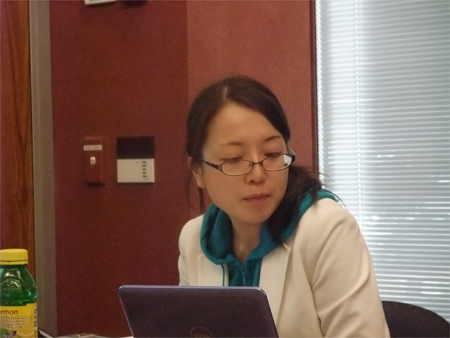[Report] Workshop “Brain Science and Ethics”
At Florey Neuroscience Institutes in Melbourne, 6 UTCP members and Prof. Neil Levy had talks at Workshop “Brain Science and Ethics” held on March 23, 2010. This workshop was the final event of the UTCP Program in Brain Sciences and Ethics.
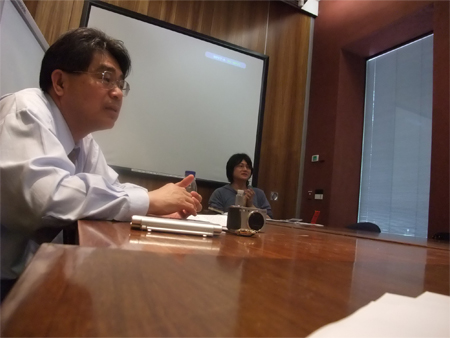
The workshop was organized by UTCP and Prof. Neil Levy (Florey Neuroscience Institutes in Melbourne). We thank him for his efforts to organize it, and we also hope to continue research cooperation with him.
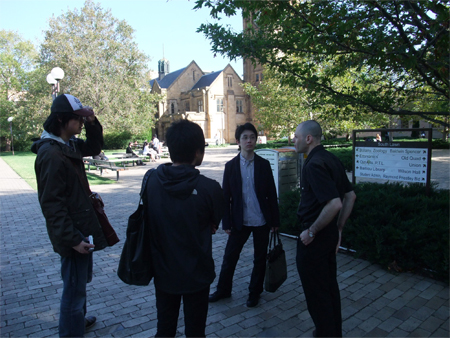
Program
Yukihiro Nobuhara (UTCP)
Is it possible to read the mind from the brain?
Eisuke Nakazawa (UTCP)
Memory manipulating technologies and the idea of authenticity
Kei Yoshida (UTCP)
A neuroeconomic approach to pathological gambling
Mineki Oguchi (UTCP)
Ethical considerations for neuromarketing: The problems of pseudoscience and consumer autonomy
Boku Sutetsu (UTCP)
The concept of mental disorder: The DSM and ICD's concept and current debates
Haruka Tsutsui (UTCP)
Neuroethics of sex/gender: The "male/female brain" discourse and sex/gender in our society
Neil Levy (Florey Neuroscience Institutes)
Consciousness and Moral Responsibility
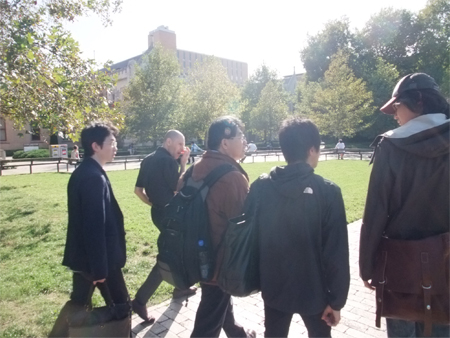
[Reports by UTCP members]
NAKAZAWA Eisuke (UTCP)
I examined the relationship between memory erasure technologies and authenticity. The idea of authenticity is often used as the last trump card against enhancement technologies. But it is not clear what authenticity is and how it is defined as an ethical criterion. From the viewpoint of memory manipulating technologies, I separated personal numerical identity from authenticity and defined the latter as an ethical criterion.
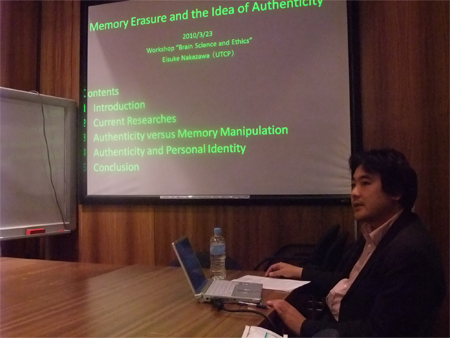
YOSHIDA Kei (UTCP)
My talk, “A neuroeconomic approach to pathological gambling,” is based on my paper written in Japanese and published in Ethics and Society in the Age of Neuroscience (UTCP Booklet 15); however, I have added some details about Japanese pathological gambling and gambling industries which are unfamiliar to those who do not live in Japan. After my talk, a lot of questions were raised, which were helpful to me.
This workshop was the finale of our program “Brain Sciences and Ethics.” I feel deeply moved by that, because our program was started by reading Prof. Levy’s book, Neuroethics and my first job at UTCP was to write blogs about it (/blog/___brain_sciences_and_ethics/0010_seminar_1_reading_levy/index_en.php). In this regard, our program started with and ended with him. We shall continue our studies in neuroethics and collaborations with him in a new program, “Science, Technology, and Society.”
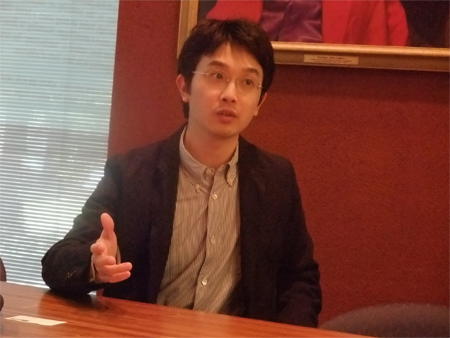
OGUCHI Mineki (UTCP)
My presentation was based on my recent paper “Ethical considerations of neuromarketing: the problems of pseudoscience and consumer autonomy” which was published in Ethics and Society in the Age of Neuroscience (UTCP booklet 15). In my presentation, I first explained the background, recent trends and characteristics of neuromarketing, then analyzed social and ethical concerns about neuromarketing in terms of the problems of pseudoscience and consumer autonomy.
After my presentation, I was asked several questions, for instance, about the validity of applying the problem of pseudoscience to neuromarketing and about a recent research on the subliminal effect that I mentioned in my presentation. I was repeatedly asked the former question, which indicates that I need to revise my argument to make the problem situation more plausible. This requires a further effort.
The last talk of Professor Levy was about the relation between consciousness and moral responsibility. It was full of stimulating ideas. His view that a value can be treated as a set of dispositions is highly suggestive to me. I would like to express my deepest gratitude for Professor Levy to organize this workshop.
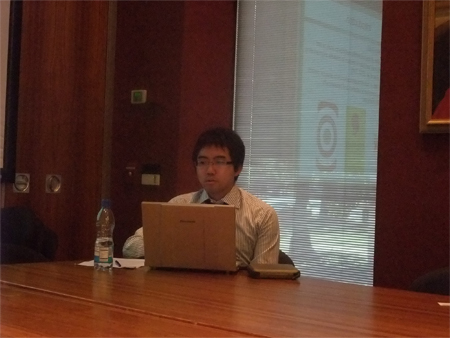
What is mental disorder? This concept is involved in practical problems such as insanity defense or stigmatization, and hence, should be clarified. In my presentation, the definitions of mental disorder in general that are embraced by DSM-IV-TR and ICD-10 are criticized. In these manuals, the presence of “dysfunction” is thought to be necessary for a condition to be qualified as a mental disorder. I tried to determine the meaning of dysfunction in terms of three alternative concepts of (biological) function. Whichever concept of function we assume, however, the definition of mental disorder involves some difficulties. Thus the definitions of mental disorder that rely on the concept of dysfunction cannot be used as a criterion according to which we decide to add or remove a diagnostic category.
I really thank participants for their suggestions. After the discussion, I came to think that harmfulness which is also a necessary component for mental disorder in the diagnostic systems also needs to be clarified. Then I would like to study more specific problems such as relationships between individual mental disorders (e.g. autism) and insanity defense.
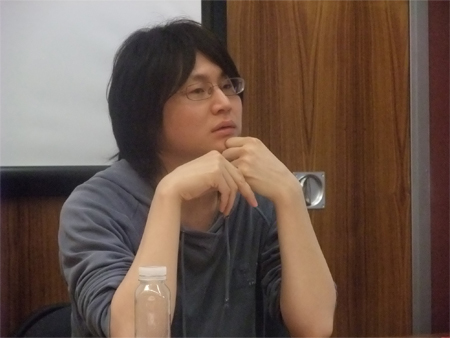
On March 23rd, 2010, I made a presentation at the workshop “Brain Science and Ethics”, held at Florey Neuroscience Institutes, University of Melbourne. The title of my presentation was “Neuroethics of sex/gender: The "male/female brain" discourse and sex/gender in our society”.
Since 2009, I have been working on neuroethical problems of sex/gender. This presentation is based on my paper in Ethics and Society in the Age of Neuroscience (UTCP Booklet 15), with some addition and revision.
In neuroethics, there are few works that directly address problems of sex/gender differences. On the other hand, sex/gender is one of the themes that everyone can face in some way in one’s life. Perhaps because of that, my work on this theme often receives responses with a keen interest. In the workshop, the following topics were discussed: political interests in a popular discourse on sex differences in the brain, advantages and disadvantages of differentiation according to sex/gender differences between men and women, and so on.
Neuroethics of sex/gender differences is just beginning. I would like to carefully develop discussions about it.
